Rehoming a dog is an emotional experience for both the owner and the pet. Whether it’s due to unavoidable circumstances or adopting a dog from a rescue, one common question lingers in the minds of many: Does a dog ever forget its first owner? Understanding how dogs form and retain memories, especially when it comes to the people they bond with, can provide comfort and clarity.
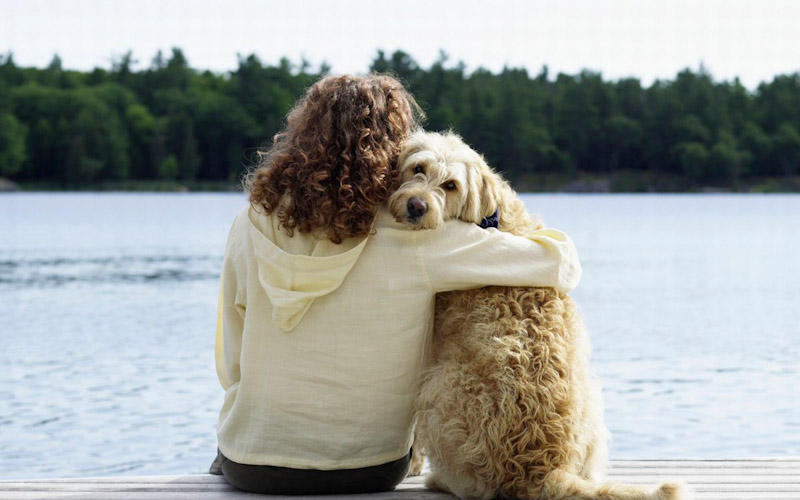
In this article, we’ll explore how dogs remember their owners, whether they can recall their first home, and how they adapt to new environments. By understanding canine memory and attachment, both former and new pet owners can gain insight into how dogs experience relationships, making the transition to a new home smoother for everyone involved.
1. Understanding Canine Memory
Overview of Canine Memory
When exploring whether dogs forget their first owners, it’s important to understand how canine memory functions. Like humans, dogs have both short-term and long-term memory, but they process these memories differently. Short-term memory in dogs tends to last only a few minutes, allowing them to recall simple actions like where they’ve placed a toy or when they last ate. Long-term memory, however, is where deeper emotional connections are stored, allowing dogs to remember significant people or events for months or even years.
Unlike humans, dogs don’t recall memories in a linear or detailed way. They don’t reminisce about specific moments in time, but instead associate feelings and emotions with their memories. While a human might remember a detailed sequence of events from a past relationship, a dog will more likely recall the emotional impact of that relationship—whether it was positive or negative.
Emotional Memory
Dogs primarily rely on emotional memory, meaning they retain associations based on the feelings they experienced during interactions with people, places, or events. This emotional memory is powerful, especially when it comes to their caregivers. If a dog’s first owner provided care, affection, and positive experiences, those emotions become embedded in the dog’s long-term memory. Even after being rehomed, these positive associations may surface if the dog encounters its former owner again, triggering a joyful or calm response.
On the other hand, negative experiences can leave a lasting impact as well. Dogs that faced neglect or trauma with their first owner may develop negative emotional memories. This can affect how they react to certain stimuli, including their former owners, if the relationship was built on fear or anxiety.Thus, emotional memory plays a critical role in a dog’s ability to remember its first owner. Whether those memories are positive or negative, they help shape how the dog interacts with people over time.
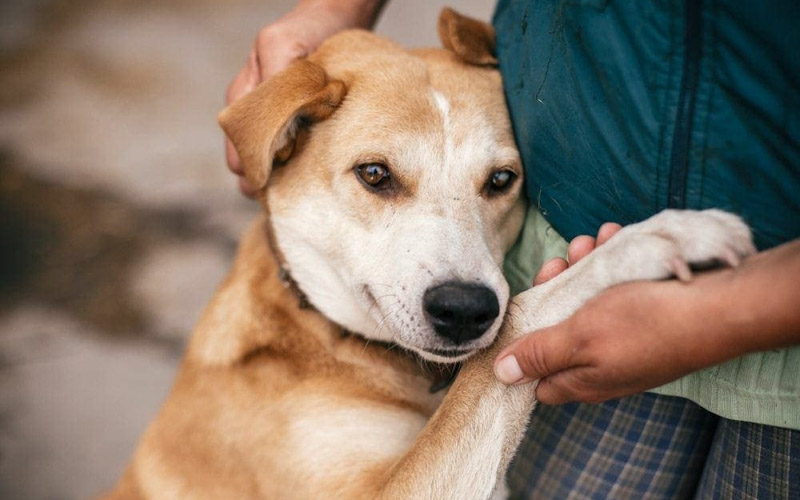
2. Do Dogs Recognize Their First Owners?
The Role of Scent
Dogs possess an extraordinary sense of smell—one that is significantly stronger than that of humans. This heightened olfactory ability plays a central role in their recognition system. A dog’s brain is wired to process scents in great detail, allowing them to identify and remember individuals through their unique odor. When it comes to recognizing their first owner, dogs rely heavily on this sense of smell. The scent of their former caretaker can trigger memories, even after a long period of separation.
A dog’s nose has around 300 million scent receptors (compared to about 5-6 million in humans), making their ability to recognize and differentiate smells extremely powerful. When a dog forms a bond with its first owner, it associates that person’s scent with safety, care, and affection. If reunited, a dog can recognize their former owner’s scent immediately, often resulting in an enthusiastic and emotional reaction, no matter how much time has passed.
Memory and Time
The length of time a dog can remember its first owner depends on a variety of factors, including the depth of the bond they shared and the experiences they had together. Dogs are believed to have excellent long-term memory when it comes to their emotional connections with people. If the initial relationship was one of love and care, a dog is more likely to retain those memories for years.
Scientific studies support the idea that dogs are capable of long-term recognition. Research into canine cognition shows that dogs can remember their owners even after extended absences. In one study, dogs showed heightened levels of excitement and reduced stress when exposed to scents from their owners, even after prolonged separations. This indicates that the emotional memory linked to smell is deeply embedded in a dog’s long-term memory, enabling them to recall their first owner based on scent alone.
While the strength of the bond and positive experiences help preserve these memories, it’s important to note that dogs also live in the present. Their ability to form new attachments does not erase the memory of their first owner, but rather adds to their capacity for love and loyalty over time.
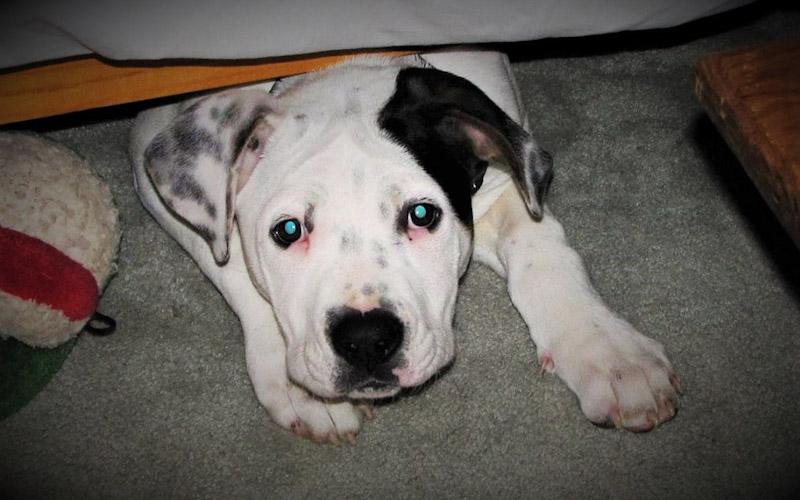
3. Factors That Affect a Dog’s Memory of Its First Owner
Strength of Bond
The emotional connection between a dog and its first owner plays a significant role in whether the dog remembers them after being rehomed. Dogs are known for their loyalty, and the stronger the bond they form with a person, the more likely they are to retain memories of that individual. If the first owner provided consistent care, affection, and positive reinforcement, the dog will likely remember them, even if they are separated for a long time. This bond creates lasting emotional associations, which are stored in the dog’s long-term memory.
For example, dogs that have had a strong, loving bond with their first owner may display excitement and joy upon reuniting, even after years apart. This reaction stems from the emotional connection that was formed early on, reinforcing the idea that dogs hold onto these attachments as long as the bond was significant.
Length of Time with the First Owner
The duration a dog spends with its first owner can also impact memory retention. A dog that spent several years with its first owner is more likely to remember them than a dog that only spent a few months in their care. Longer periods allow for more interactions, shared experiences, and stronger emotional ties, all of which contribute to the dog’s memory of that person.
However, even dogs that spend a short time with their first owner can retain memories if the relationship was particularly meaningful or intense. Puppies, in particular, are impressionable during their early developmental stages, and strong bonds formed during this period may last throughout their lives, regardless of the eventual length of separation.
Nature of the Experience
The quality of a dog’s experiences with its first owner can greatly influence its memory. Positive experiences, such as playtime, affection, and reliable care, are more likely to leave a lasting emotional impact. On the other hand, trauma, neglect, or abuse may also result in strong memories, but with different emotional outcomes. A dog that was mistreated by its first owner might remember that person in a negative light, associating their presence with fear or anxiety.
Dogs that experience trauma may display avoidance behaviors or signs of stress when exposed to triggers related to their past. In these cases, the memory of the first owner is still present but linked to negative emotions rather than affection. This demonstrates how emotional memory, whether positive or negative, plays a crucial role in how a dog recalls its first owner.
Understanding these factors can help current and former dog owners navigate the emotional complexities of rehoming, recognizing that while dogs are capable of remembering their past, they are also incredibly resilient and adaptable in forming new, positive bonds.

4. Rehoming and New Attachments
The Dog’s Adaptation Process
When a dog is rehomed, it goes through a natural adjustment period as it begins to adapt to its new environment and caregivers. Dogs are highly adaptable creatures, and although the change can be initially confusing or stressful, most dogs will start to settle in as they become familiar with their new surroundings and routines. During this transition, the dog’s emotional memory of its first owner may still be present, but it will not prevent the dog from forming new bonds with its new family.
Dogs rely on consistency, care, and positive experiences to feel secure, and as they begin to associate their new owner with these things, a new attachment forms. This process can take days or even weeks, depending on the dog’s temperament and the circumstances of the rehoming, but dogs are remarkably resilient and capable of creating strong, lasting bonds with their new caregivers.
The Importance of Consistency and Care
For new owners, the key to building a strong bond with a rehomed dog lies in consistency and care. Dogs thrive on routine, so establishing a stable schedule for feeding, walks, and playtime can help the dog feel more secure in its new home. Providing consistent affection, attention, and training will also strengthen the emotional connection between the dog and its new family.
Practical tips for new owners include:
- Patience: Allow the dog time to adjust at its own pace.
- Positive reinforcement: Reward good behavior with treats, praise, and playtime.
- Routine: Stick to a daily schedule that the dog can rely on for structure and stability.
- Affection and attention: Spend quality time bonding with the dog through activities like walking, playing, or simply sitting together.
By creating a caring and consistent environment, new owners will find that their dog becomes loyal and trusting. Over time, the emotional ties to the new family will become just as strong, if not stronger, than the memories of the first owner.
Can a Dog Bond Equally with a New Owner?
Absolutely. While dogs may remember their first owners, they are highly capable of forming deep, meaningful attachments with their new family. The emotional memory of a previous owner does not prevent a dog from bonding just as closely—or even more—with a new caregiver. Dogs are remarkably loyal to those who provide them with love, stability, and care, regardless of past relationships.
In fact, many rehomed dogs go on to thrive in their new homes, building strong, lifelong bonds with their new families. The process of forming these attachments may take some time, but with consistent effort, new owners can rest assured that their dog will feel just as connected to them as it did to its first owner.
This adaptability is one of the reasons why rehoming can be a positive experience for dogs. They are not bound to a single caregiver for life; rather, they are capable of forging new, loving connections that bring them happiness and security.
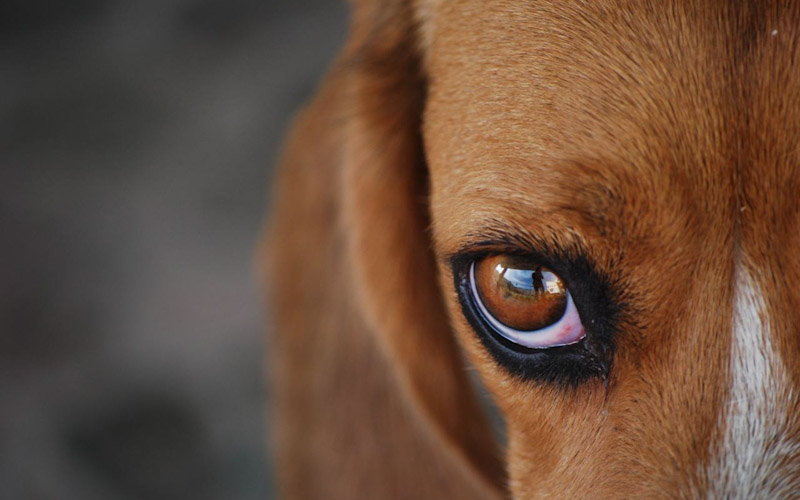
5. Do Dogs Miss Their First Owners?
Emotional Impact of Separation
The emotional landscape of a dog’s experience can be complex, and separation from their first owner may indeed trigger feelings of sadness or longing. Dogs are social animals that thrive on companionship, and a close bond with their first owner can leave a significant emotional imprint. When rehomed, some dogs may exhibit signs of distress during the transition period, such as whining, pacing, or looking for their former owner. These behaviors can indicate that the dog is experiencing a sense of loss or confusion about their new circumstances.
However, it’s important to recognize that while dogs may feel a sense of longing initially, their emotional responses are often tied to their immediate circumstances and the quality of care they receive in their new environment. In a loving and stable setting, many dogs can adapt to the change and develop new attachments over time, mitigating feelings of sadness.
How Dogs Cope with Change
Dogs possess remarkable resilience and adaptability, which enables them to cope with change, especially when they are in a stable, loving environment. Their ability to form new relationships is a testament to their emotional flexibility. When provided with consistent care, affection, and positive reinforcement, dogs can learn to trust their new owners and find comfort in their new surroundings.
A dog’s coping mechanisms may include seeking out their new owners for companionship or engaging in activities that promote bonding, such as playtime or walks. As they settle in, dogs often begin to display their personality and engage more fully with their new family. This adjustment period varies for each dog, but many can move on from past relationships and embrace their new home once they feel secure.
Signs a Dog May Still Remember Its First Owner
While dogs are capable of forming new attachments, there may still be moments when a dog remembers its first owner. If they encounter their former owner after some time apart, certain behavioral signs may indicate recognition. These signs can include:
- Excitement: A dog may exhibit heightened energy, such as jumping, barking, or running toward the person.
- Tail wagging: An enthusiastic tail wag can be a clear sign of recognition and joy.
- Nuzzling or licking: Dogs may seek physical contact, showing affection or familiarity.
- Sniffing: A dog may engage in sniffing to gather the scent of their former owner, indicating recognition through their powerful sense of smell.
- Submissive behaviors: Some dogs may show submissive postures, like rolling over or lowering their bodies, as a way to express recognition and respect.
These behaviors suggest that while dogs are capable of moving on and adapting to new owners, they also retain emotional memories of their past relationships. The capacity for recognition can vary among individual dogs, depending on their experiences, attachment styles, and the nature of their past interactions. Overall, the bond between a dog and its owner is profound, showcasing the depth of canine emotion and memory.
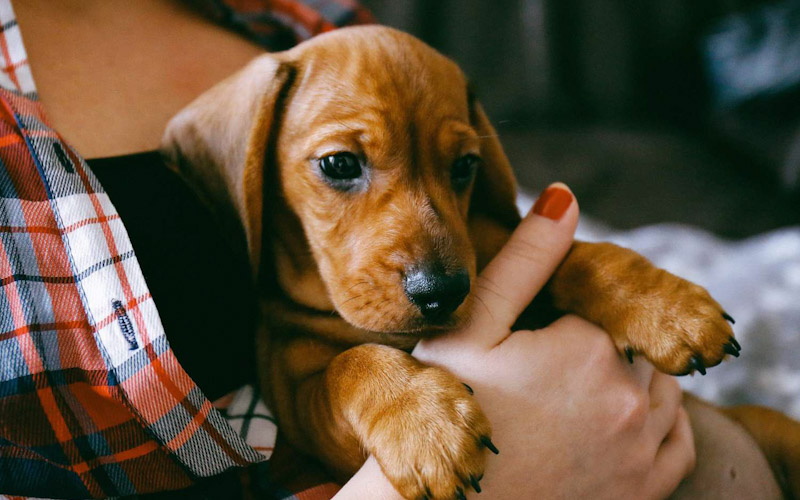
6. Comforting Former and New Owners
For New Owners
Becoming a new pet parent can be both an exciting and daunting experience, especially when welcoming a rehomed dog into your life. It’s essential to reassure new owners that their dog can and will form a strong, loving bond with them. While the initial adjustment period may present challenges, patience is key. Dogs are incredibly adaptable, and with time, they can develop deep, meaningful attachments to their new families.
To strengthen this bond during the adjustment phase, new owners can consider the following tips:
- 1. Establish a Routine: Dogs thrive on predictability. A consistent schedule for feeding, walks, and playtime helps create a sense of security.
- 2. Engage in Interactive Play: Spend quality time engaging in activities that your dog enjoys. Whether it’s playing fetch, going for walks, or teaching new tricks, these interactions help build trust and connection.
- 3. Use Positive Reinforcement: Reward good behavior with treats, praise, and affection. This reinforces desired actions and helps the dog associate their new owner with positive experiences.
- 4. Create a Safe Space: Provide a comfortable area in the home where the dog can retreat when feeling overwhelmed. This sanctuary can help them feel secure during the transition.
- 5. Be Patient: Understand that every dog adjusts at their own pace. Some may take longer than others to fully embrace their new home. Offer love and support throughout the process, and allow the bond to grow naturally.
By following these tips and being attentive to their dog’s needs, new owners can create a nurturing environment that fosters a loving relationship, paving the way for a fulfilling partnership.
For Former Owners
For former owners, it’s important to find comfort in knowing that while dogs may remember their first owners, they are also capable of being happy and loved in their new homes. The emotional memories dogs hold of their first owner can be bittersweet, but they do not negate the potential for joy and connection with new caregivers.
Understanding that dogs are resilient can help former owners feel at ease about their pet’s future. It’s natural to wonder about the well-being of a rehomed dog, but knowing that a stable, loving environment can lead to a fulfilling life can be reassuring. Many dogs thrive in new homes, developing strong bonds with their new families, and bringing joy to their lives.
Former owners can also take solace in the knowledge that they provided their dog with a foundation of care and love, which has lasting benefits. The experiences shared, whether joyful or challenging, contribute to the dog’s emotional landscape, enriching its capacity for love and loyalty.
By embracing the idea that both the former and new owners can play vital roles in a dog’s life, everyone involved can find peace in the transitions that come with rehoming. Dogs are incredibly adaptable beings, and with the right support and love, they will continue to lead fulfilling, happy lives in their new homes.
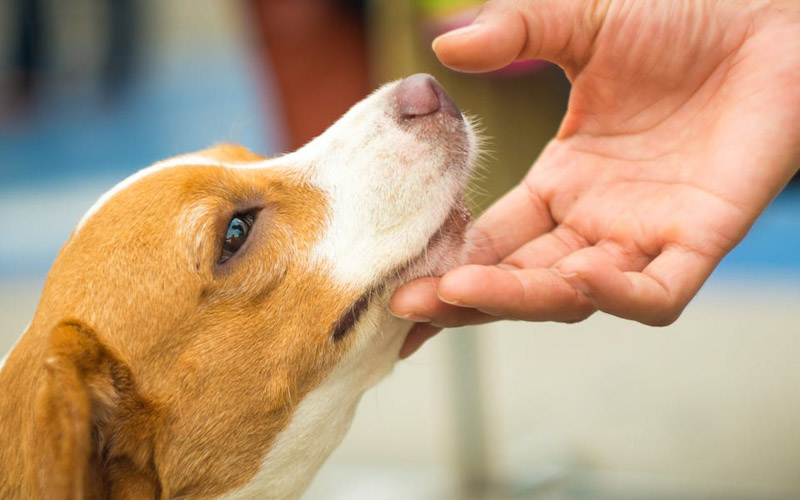
Final Thoughts
As we explore the intricate emotional landscape of canine memory and attachment, several key takeaways emerge. Dogs indeed may remember their first owners, retaining emotional memories shaped by their experiences and bonds. However, they are also remarkably adaptable creatures, capable of forming new, deep connections with their new families. This resilience is a testament to their emotional depth, showcasing their ability to navigate change while still being open to love and affection from new caregivers.
For anyone who has experienced the joy of welcoming a rehomed dog into their home, your journey is unique and valuable. We encourage you to share your experiences with rehomed dogs, whether it’s the challenges you faced during the transition or the joys of forming a new bond. Your stories can provide comfort and encouragement to others navigating similar paths. If you’re currently in the process of transitioning a dog to a new home, don’t hesitate to reach out for advice or support. The pet community is filled with individuals who understand the nuances of rehoming and can offer insights that make the journey smoother.
In closing, let us remember the resilience and emotional capacity of our canine companions. Each dog, whether they are transitioning from one home to another or finding a forever family for the first time, possesses the remarkable ability to adapt and love. The bond you form with a pet, regardless of whether you are their first or second owner, can bring immeasurable joy and fulfillment to your life. Embrace the journey of nurturing this bond, and celebrate the love that dogs so generously give. Your efforts not only enrich their lives but also transform your own, creating a lasting partnership that is as rewarding as it is profound.